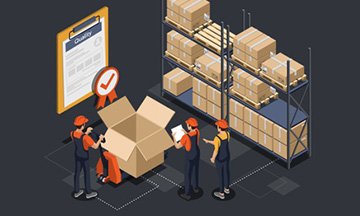Strategic Sourcing Training Course
| Date | Venue | Duration | Fees | |
|---|---|---|---|---|
| 27 May - 31 May, 2024 | Dubai | 5 Days | $4750 | Register |
| 10 Jun - 14 Jun, 2024 | Dubai | 5 Days | $4750 | Register |
| 15 Jul - 19 Jul, 2024 | Dubai | 5 Days | $4750 | Register |
| 29 Jul - 02 Aug, 2024 | Istanbul | 5 Days | $5695 | Register |
| 26 Aug - 30 Aug, 2024 | Dubai | 5 Days | $4750 | Register |
| 30 Sep - 04 Oct, 2024 | Dubai | 5 Days | $4750 | Register |
| 06 Oct - 10 Oct, 2024 | Doha | 5 Days | $4950 | Register |
| 07 Oct - 11 Oct, 2024 | Dubai | 5 Days | $4750 | Register |
| 25 Nov - 29 Nov, 2024 | Dubai | 5 Days | $4750 | Register |
| 16 Dec - 20 Dec, 2024 | Dubai | 5 Days | $4750 | Register |
Course Overview
What is Strategic Sourcing? Strategic sourcing is the process of developing and increasing channels of supply at the lowest total cost, not just the lowermost purchase price.
It advances and develops upon conventional buying activities to embrace and include every event within the procurement cycle, from specification to receipt and payment of goods and services.
Purchasing and supply management decisions are crucial because they impact directly on the competitive position and operational efficiency of organizations.
The word “Sourcing” is a substitute and alternate word for procurement. It is financially material, however strategically peripheral, corporate function. Now, globalization, aided by rapid technology innovation, is shifting the basis of competition.
Purchasing is perceived to change its focus from daily procurement activities to long term, value-adding strategic tasks, which can help companies attain success in the marketplace.
Strategic sourcing is a methodology and approach in supply chain management that enacts the technique in which the information is collected and used so that an organization can leverage its consolidated purchasing power to find the best values.
This Zoe advanced certification course will focus on the supply network, value creation, risk, and uncertainty in the supply chain and the overall responsiveness and resilience of the supply chain.
Course Objectives
- Show the importance of purchasing for an organization and a supply chain
- The purchasing process, purchasing policy and procedures
- Formulate effective and successful strategies for supply management and supplier evaluation
- Examine and assess the approaches to supplier management and worldwide sourcing
- Analyse supplier costs and purchasing processes by means of suitable techniques
- Plan and strategize effectively for supply management negotiation and contracting
- Appraise and consider the legal and ethical issues in purchasing
- Propose and recommend a framework for measuring and evaluating purchasing performance
- Relate with the strategies and techniques in purchasing and supply management to the work environment
- Develop the necessary knowledge and interpersonal skills to work effectively in a team
- Demonstrate written proficiency on specification, performance and contractual areas
Training Methodology
Strategic Sourcing Certification is an interactive training program and will consist of the following training approaches:
- Lectures
- Seminars & Presentations
- Group Discussions
- Assignments
- Case Studies & Functional Exercises
Zoe Talent Solutions follows the ‘Do-Review-Learn-Apply’ model.
Organisational Benefits
Companies who send in their employees to participate in the Strategic Sourcing Certification Course can benefit in the following ways:
- Get an understanding of the purchasing operations and structure, so that they gain an appreciation of the role purchasing plays in the supply chain
- Serves as a roadmap to procure and acquire the goods and services the organization knows it needs ahead of time
Personal Benefits
Professionals who participate in this Strategic Sourcing Certification Course can benefit in the following ways:
- Procurement professionals will receive time to find the best price, instead of waiting until there is an immediate need
- Identify and recognize opportunity areas in the supply chain process that will assist in improving service levels and cost risk reduction
- Enhanced credibility, capability and confidence in supply chain expertise
Who Should Attend?
This course would be suitable for:
- Procurement Professionals
- All professionals, including managers and supervisors, who are in various stages of the supply chain in an organisation
- Senior members of an organisation responsible for critical and analytical decision making
- Professionals involved and responsible for rolling out and scrutinising tenders received from prospective suppliers
- Any other professional interested in knowing more about strategic sourcing
Course Outline
Module 1: Effective Category Management
Category Management is a strategic approach to maximize value, benefit and profit to the organization through structured procurement processes and it requires organization-wide involvement to succeed.
This module shares the tools involved in making category management success in organizations and the implementation steps to it. When implemented and executed effectively, this approach can build significant competitive advantage, deliver dramatic cost reduction and the value and innovation required for business success.
- Comprehend what is category management and the strategic function it plays to deliver better outcomes
- Defining strategic sourcing and category management
- The stages of a conventional sourcing process
- Transactional and strategic sourcing activities
- Differentiating account management and category management
- Understand the key principles of category management
- How to utilize various tools to develop the category strategy for their organizations
- Implement the 5 stages of category management
Module 2: Digital Procurement- Past, Present and Future
- Gain an overview of the impact of digitalization on procurement over the years, the benefits and pitfalls
- Know and understand the things, e.g., technologies, systems, structural change, etc. needed to support their organization’s digital procurement strategy
- Understand the steps to be taken to implement the digital procurement plan in order to realize the full potential of the digital revolution
Module 3: Sourcing and Risk Management
- Meaning and definition of risks, hazards, exposure and risk appetite
- Positive and negative consequences of risk
- Direct and indirect losses
- Internal and external sources of risk
- Classifications of risk: financial, strategic, operational and hazard
- Risks from the broader environment: STEEPLED – social, technological (failure including cyber risks and crime), economic, environmental, political, legislative, ethical (labour standards and sourcing aspects) and demographic
- The nature of fraud in organization’s and supply chains, why fraud takes place and different types of fraud
Module 4: Data Analytics and Finance for Procurement
- Increase and Gain an appreciation of finance and its impact on procurement
- Study about financial ratios and interpret financial documents
- Link financial information to procurement tasks
- Use data analytics to forecast demand planning
- Analyse and explore data impact to warehouse management and other functions
Module 5: Supplier Relationship Management
Distinguish between different types of commercial relationships in supply chains.
- Internal and external relationships
- The relationship spectrum
- The relationship life cycle
Review portfolio analysis techniques to gauge relationships in supply chains
- Matrices to find and identify supply, supplier and purchaser positioning
- Developing action plans
Recognise the competitive forces that impact on relationships in supply chains
- Sources of competitive advantage
- Competitive forces: sources and bases of competitive rivalry, bargaining power of buyers and suppliers, the threat of new entrants and potential substitutes
- STEEPLE factors that influence and impact on supply chains (social, technological, economic, environmental, political, legislative and ethical)
Compare and Match the sources of added value that can be achieved through
supply chain relationships
- The connection between relationships as a process and the achievement of added value outcomes
- Sources of added value: pricing and cost management, refining quality, timescales, quantities and place considerations in procurements from external suppliers
- The link between an organization’s in supply networks
Module 6: Procurement Fraud, Ethics and Sustainability
- Know the principles of public procurement and the key role they place in conducting a fair and ethical procurement process
- Acknowledge the vital role of each stakeholder in reducing opportunities for corrupt practices and conflicts of interest
- Understand where in the procurement process corruption risks and ethical dilemmas can happen and recognise how to anticipate and avoid them
- Endorse common values and define the behaviour and performance expected of procurement professionals
- Understand sustainable procurement and its benefits











